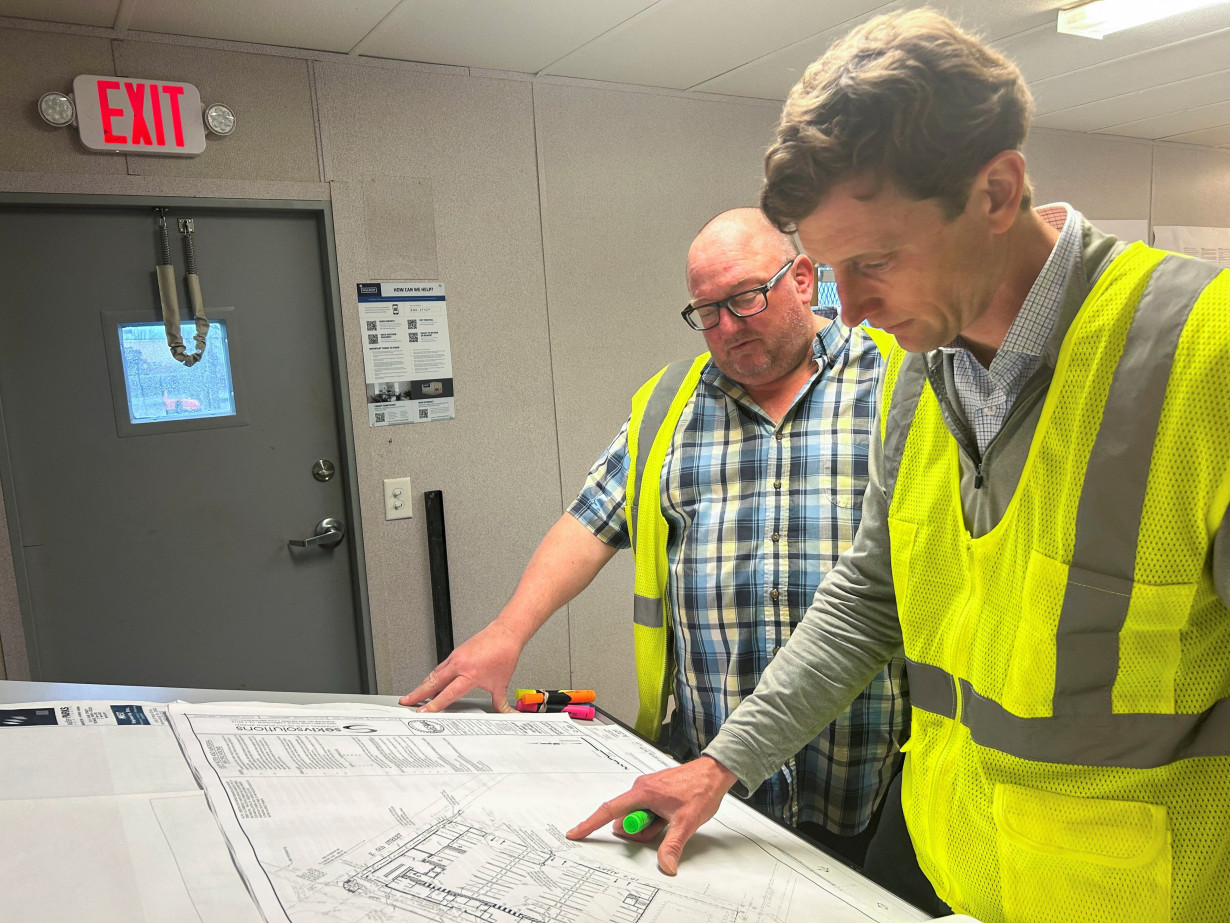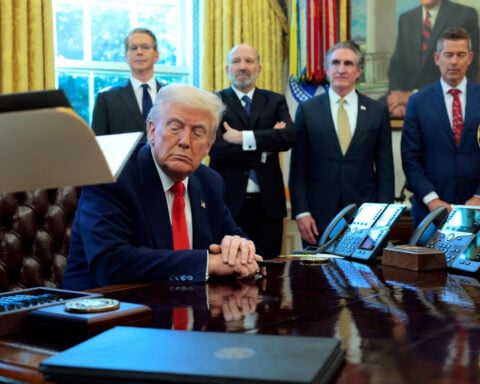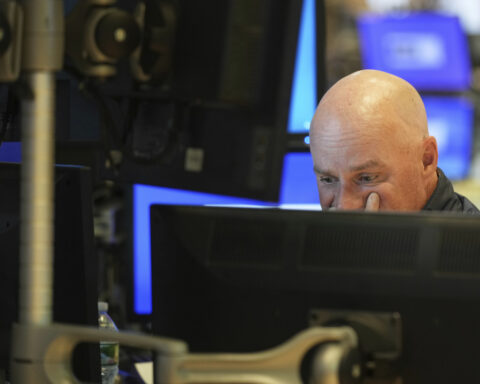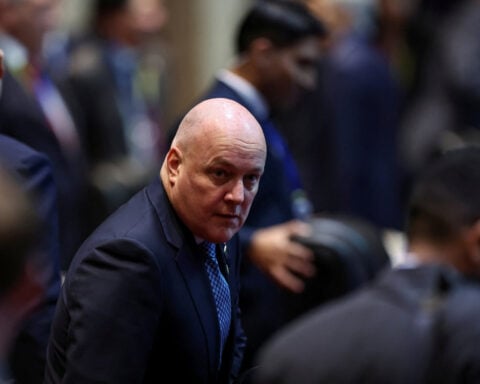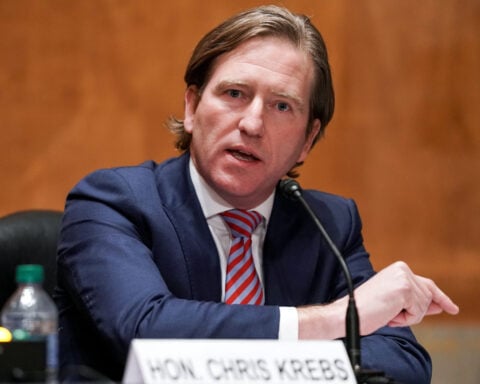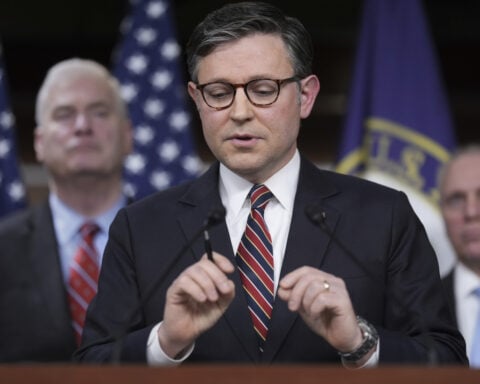By Howard Schneider
RICHMOND, Virginia (Reuters) - Will Paulette's latest apartment construction project was mired in mud as a rainstorm passed through this week, a situation that matched the murky outlook for builders who are assessing how sweeping new tariffs might affect their costs, the flow of work, and the willingness of developers and lenders to commit to projects.
Nothing has been canceled yet, he said from the office at the site of KBS Inc's 162-unit building in Richmond's Manchester area, but investors and banks were becoming wary, and subcontractors were reluctant to guarantee prices for often-imported goods like drywall that he might typically order now but for delivery months down the road - when threatened tariffs as high as 25% might be in place on source countries like Mexico and Canada.
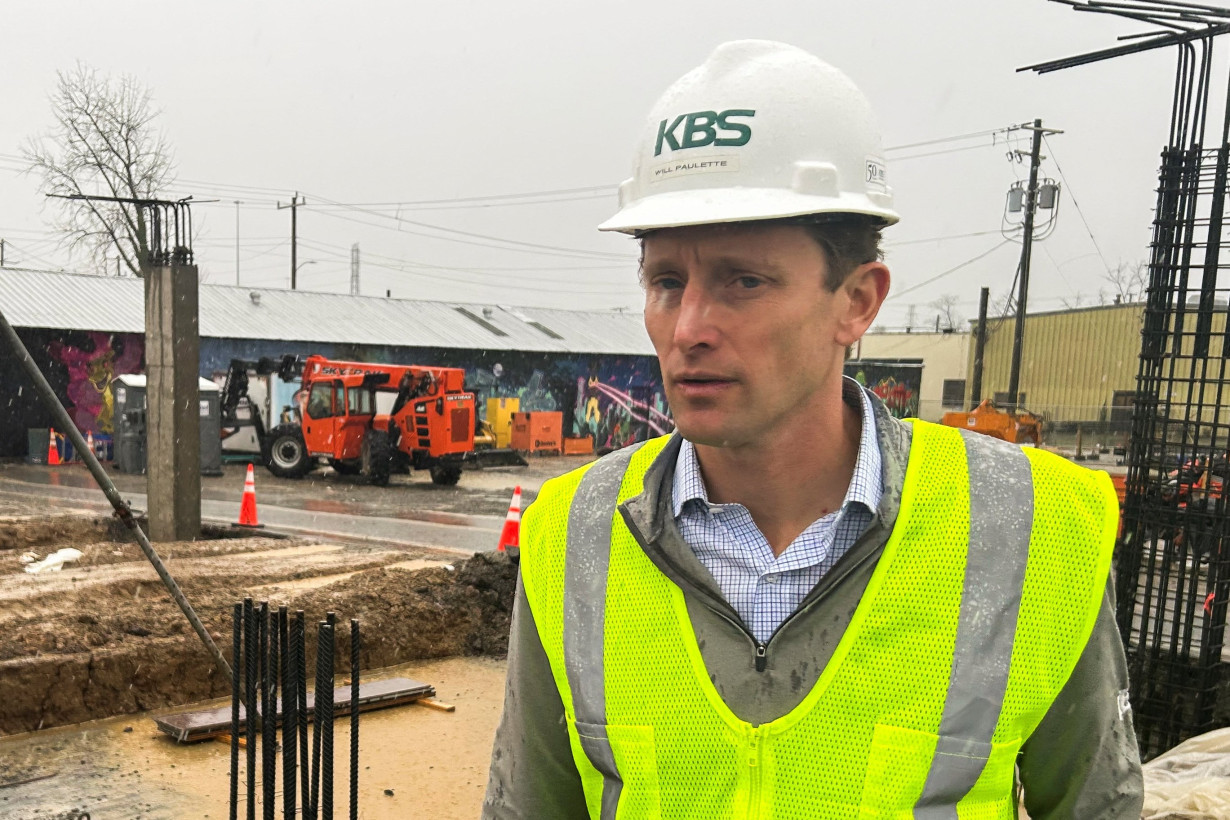
The levies were to take effect this week, but Trump delayed them to April, as he did once before, a pattern that has made investment a guessing game and may be driving measures of uncertainty ever higher.
"We are trying not to overreact organizationally...The next day this could be changed," he said. "We are in the middle of pricing work...and our conversation with owners would be I don’t think you want us to price in the worst-case scenario, because if we do that would be a pretty big cost impact that would make the job not go.
"So what we are saying is we are going to probably price it as if tariffs don’t exist and then just make sure we are qualified under contracts and it’ll be a change order if they did. But you know that is a leap of faith" owners and banks may not take, Paulette said, noting one project has already been slowed because the lender "wants to see how it all shakes out...The ambiguity is a big risk."
Multiply Paulette's view across a U.S. economy that imports around $3 trillion of goods annually and it becomes clear why economists see the tariffs as a likely blow to growth.
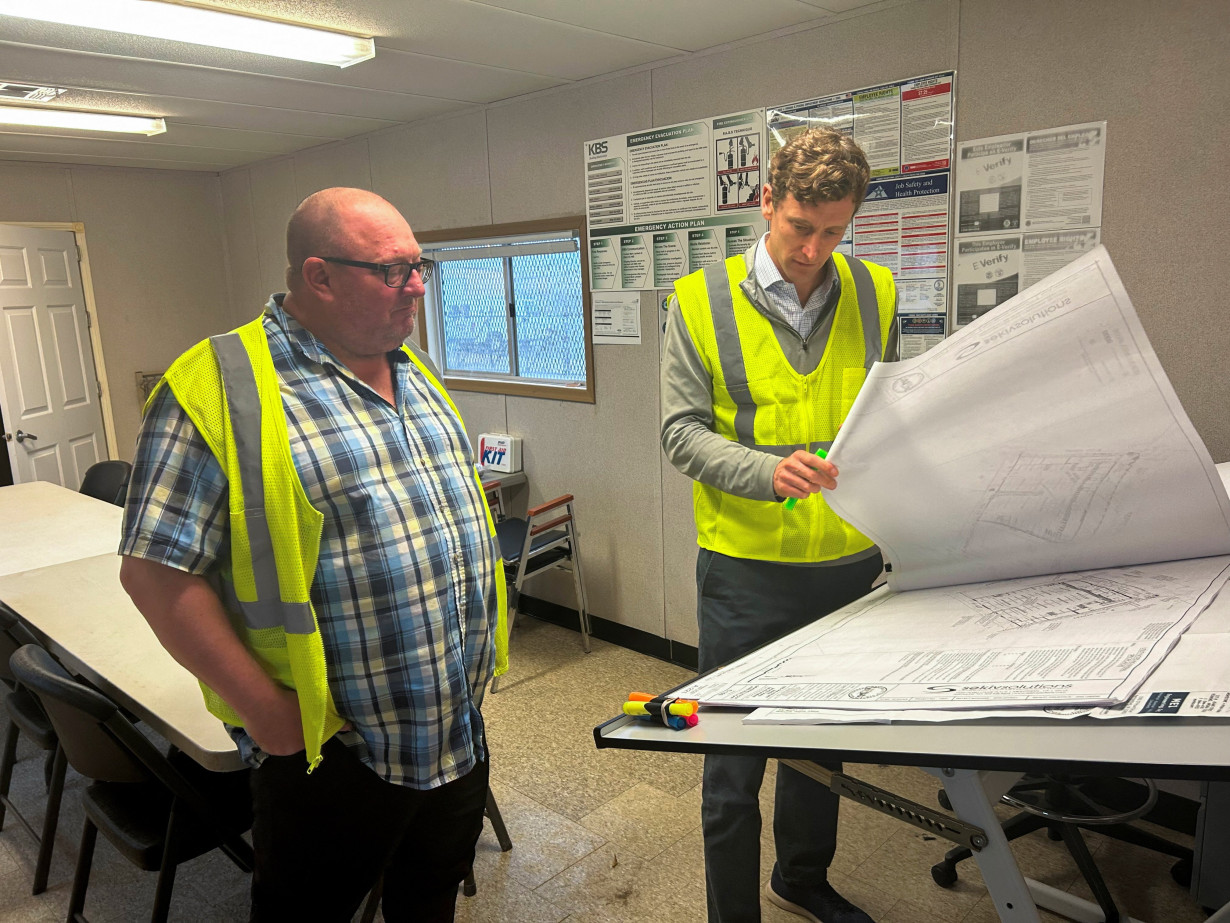
But the uncertainty doesn't end there.
In recent conversations convened by Richmond Fed president Tom Barkin, Virginia businesses laid out their anxiety about the coming period in stark terms.
The Fed is trying to peer through an increasingly foggy economic landscape to determine if Trump administration policy changes are likely to lead to new inflation pressures and the need for continued tight monetary policy, or to slower growth that might allow for rate cuts, or to the no-win alleyway where growth weakens and inflation stays elevated.
For builders like Paulette in Richmond, it isn't just that tariffs would upend their ability to predictably price bids. It was also the possible loss of key parts of the construction workforce depending on how wide and deep the administration's immigration crackdown extends, and what that portends for the ability for subcontractors to fill out crews and the wages they might have to pay to do so.
They also worried about the broader direction of the economy meant demand for housing would stay strong, or that prices and margins were about to come under pressure -- not unwelcome from the Fed's perspective because it could help tame inflation, but a concern if it means slowed growth or worse.
In Northern Virginia, there is also anxiety over how hard cuts to federal contracting would hit a region that has thrived, ironically, on systems integration and other work that was outsourced from federal agencies in earlier government efficiency drives.
The economy in the Washington area includes not just large numbers of federal workers, from clerical staff to top-level scientists and military officials, whose departures are starting to show up in jobless data, but a tech and consulting industry that helps maintain some of the most sensitive information systems.
One of those firms, SAIC, saw its stock price fall 30%, from a record around $152 in the days after Trump's election to under $100 by the end of February.
In a Feb. 26 panel discussion at the Northern Virginia Chamber of Commerce, SAIC CEO Toni Townes-Whitley said the "shock and awe" approach to federal spending cuts taken by the Trump administration could mean as much as a 10% hit to the region's economy over the next 18 to 24 months.
"Many times the private sector has absorbed government structural change," Townes-Whitley said, but this time there's a "very real shock to the system...My stock took a 35% drop just on the announcement of DOGE."
She doesn't, however, think the blow is permanent.
While it may take time, she said, the uncertainty today will eventually give way to understanding of the work that still needs to be done.
While part of the Elon Musk-led cost-cutting effort may be to bring in more "off the shelf" technology, she said, "it isn't mission ready. It is not military ready."
"At some point," she said, "all the nonsexy stuff has to happen."
(Reporting by Howard Schneider; Editing by Anna Driver)

 Trump has begun another trade war. Here's a timeline of how we got here
Trump has begun another trade war. Here's a timeline of how we got here
 Canada's leader laments lost friendship with US in town that sheltered stranded Americans after 9/11
Canada's leader laments lost friendship with US in town that sheltered stranded Americans after 9/11
 Chinese EV giant BYD's fourth-quarter profit leaps 73%
Chinese EV giant BYD's fourth-quarter profit leaps 73%
 You're an American in another land? Prepare to talk about the why and how of Trump 2.0
You're an American in another land? Prepare to talk about the why and how of Trump 2.0
 Chalk talk: Star power, top teams and No. 5 seeds headline the women's March Madness Sweet 16
Chalk talk: Star power, top teams and No. 5 seeds headline the women's March Madness Sweet 16
 Purdue returns to Sweet 16 with 76-62 win over McNeese in March Madness
Purdue returns to Sweet 16 with 76-62 win over McNeese in March Madness
